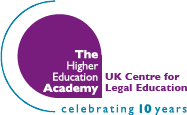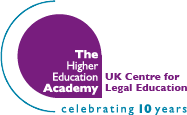2004 Competition - Joint Winner
Is legal education working?
Angela Johnson (Gonzaga University)
The need for quality legal education exists regardless of national borders. I bring the perspective of someone who has spent the last two and a half years studying law in the United States. Our countries may be different but regardless of the classroom location the same requirements are necessary for students to effectively learn the law.
Legal education is a process not unlike any other manufacturing process. We take inputs such as students, professors, and the law through a process of learning that has the beneficial output of learned practitioners of the law. Throughout this process we enter the variables of teaching methods, learning styles, technology and legal application that help mold our end product, a legal professional. These are continuous currents in this process and should be addressed to assess the efficacy of legal education today.
Recognizing that there are many components that are instrumental to a progressive and comprehensive legal education I am focusing on the intangible relationship between legal educator and pupil. It has been the relationships with my professors that have had the most impact on my legal education. Whether we have a positive or negative relationship, the interaction between us directly affects my ability and desire to learn the law.
Entering the classroom can be an exhilarating experience that carries with it the petrifying potential to degrade into an intellectual abyss. As students and instructors of the law how do we shift the possibilities to exemplify the positive potential rather than experiencing the negative aspects of legal education? As educators we must not only “think outside the box” but also be willing to create a platform from which our students can reach their educational and professional goals. Within these parameters we should investigate the forces that drive the interaction between professor and student.
Admittedly, learning the law is an interactive process that must involve both the instructor and the student in a marriage of legal premise and creative application. The legal profession is intricately complex and the skills necessary to achieve professionalism must be established in the classroom before later being sharpened through practice. Legal educators are faced with the challenge of facilitating this process everyday and should be fully prepared to do battle before stepping into the arena of the classroom. However, professors must recognize that they are not facing the enemy when they look into the faces of their students. Instead picture the audience as a mass of future peers eager for guidance through a formal orientation program.
Legal professors are extremely important to bringing law students into “the light of the law” and providing the supportive network for legal scholarship and growth. Imagine the classroom as a pledging process for the profession where educators have the responsibility to teach the next generation of legal minds. Students are not people who deserve inferior amounts of time and attention but rather require extra care as they are vulnerable in their malleable state.
The university that I attend operates with the theme that they are “teaching the people the world needs most.” An understanding of the roles we play in each other’s lives must be reached in order to make this happen. When professors fully understand that a student is a colleague in the same pursuit of knowledge that they, themselves, have accomplished then we can learn together. Professors who integrate this philosophy into their teaching have a tremendous effect on their students. These professors are my mentors and friends rather than unapproachable icons.
Professors who preach the law to students sour potential learners with the rigidity of their sermons and lack of interaction in the classroom. These feelings often continue outside of the lecture hall and surround students with a veil that covers the professor with the aura of not being approachable. While this perception may be false, consider that a person’s perception is her own reality. Enough of these perceived realities and suddenly a professor has gained an unsavory reputation with his students.
As with any journey the best results are to be had when each person knows where she is headed, how she is getting there, and isn’t afraid to ask for directions when she becomes lost. Likewise, legal education works best when both the instructor and student are working for the same goal and know the path to take. When your students falter during their legal education it is up to you to be the person who reaches out to them and guide them to their goal.
Make legal education work by making positive changes in your interactions with students and reaching out to them. When you make yourself approachable to students and supportive of their needs you succeed. Build these fundamental relationships on the pillars of respect, trust, and honesty and give your academic colleagues the best possible foundation.
Last Modified: 22 July 2010



Comments
There are no comments at this time